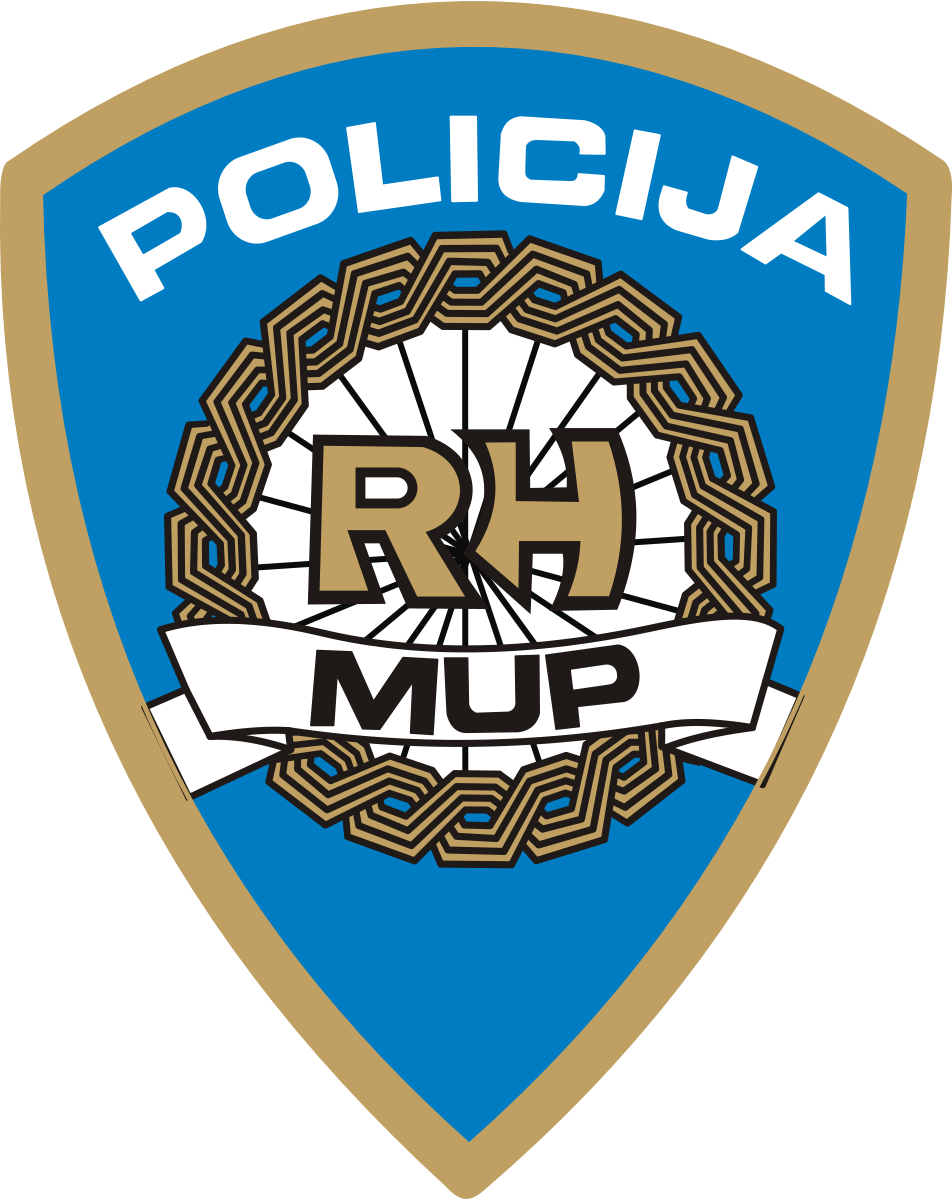Formed 1990 National agency HR | Preceding agency Milicija (SFRY) | |
 | ||
Legal personality Governmental: Government agency Governing body Ministry of the Interior (Croatia) General nature Law enforcement
Local civilian police | ||
Law enforcement in Croatia is the responsibility of the Police (Croatian: Policija), which is a public service of the Ministry of the Interior of the Republic of Croatia, carrying out certain tasks, the so-called, police activities, laid down by law.
Contents
The Police deals with the following affairs: protection of individual life, rights, security and integrity, protection of property, prevention and detection of criminal offences, misdemeanors, violations, search for perpetrators of criminal offences, misdemeanors, violations and their bringing before competent authorities, control and management of road traffic, conducting affairs with aliens, control and security of state border, and other affairs defined by law.
In the operative sense, police affairs are divided into affairs related to public peace and order, affairs related to security of public gatherings, affairs of the border police, affairs of safety of road traffic, affairs of counter-explosive protection, affairs of the criminal police, crime-technical affairs, crime-files affairs, administrative affairs, nationality-related affairs, status questions and asylum, affairs of protection and rescue, inspection affairs and technical affairs.
In recent years, the force has been undergoing a reform with assistance from international agencies, including the Organization for Security and Co-operation in Europe since its mission began there on 18 April 1996, with Croatia being admitted to OSCE on March 24, 1992.
Police powers
Police officers' powers in order to maintain peace in Croatia, such as the power to stop and search, seize property and use force, are regulated. A police officer in Croatia may only stop and search a person if a court has issued a warrant and it is possible that this person has broken the law or is in possession of items or tools which are considered unlawful.
A police officer is only allowed to use firearms if there is an immediate threat to his own life or the lives of other people, to prevent a crime from being committed for which the minimum prison sentence is five years or more, or to prevent the escape of a prisoner caught committing an offence for which the prison sentence is a maximum of ten years.
Organization
The General Police Directorate (Croatian: Ravnateljstvo policije) is an administrative organization of the Ministry of the Interior constituted for conducting police affairs. The General Police Directorate is responsible for:
General Police Directorate is headed by General Police Director (Croatian: glavni ravnatelj policije).
There are the following organization forms within General Police Directorate:
For immediate conducting of police affairs there are 20 Police Administrations (policijske uprave) divided into four categories, which cover the territory of the Republic of Croatia according to the organization of units of local self-government (counties or županije).
Weapons
A
Equipment
Since 2013, there were special efforts by the Ministry of the Interior to equip the Croatian police with new vehicles and uniforms. Police cars consist mainly of Opel Astra 4-doors and, more prominently, Skoda Octavias.
